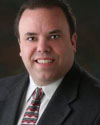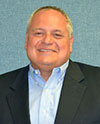City Council Candidate Responses – 2023
1. Please provide some personal background information (name, occupation, list any community activities you are involved with).
 Karl Buelow: Name – Karl Buelow
Karl Buelow: Name – Karl Buelow
Occupation – Non-Profit Operations Management, Day by Day Warming Shelter
List any community activities you are involved with – Transit Advisory Board, Feeding America Eastern WI Food Leaders Lab
 Paul Esslinger: Name – Paul Esslinger
Paul Esslinger: Name – Paul Esslinger
Occupation – Real Estate Agent
List any community activities you are involved with –
 Courtney Hansen (incumbent): Name – Courtney Hansen
Courtney Hansen (incumbent): Name – Courtney Hansen
Occupation – Apartment Maintenance
List any community activities you are involved with – Common Council
 Devon Hudak: My name is Devon Hudak and I am running for City Council on April 4th. I was born and raised in Wisconsin Rapids and came to Oshkosh in 2010 to attend school at UW Oshkosh. I graduated in 2014 with a degree in Human Services and a minor in business. I started working at ARC Contracting as their Director of Communications after graduation and have been there ever since! I also started at Discover Oshkosh in 2021 as their Community Advocate Associate. In my free time I sit on various boards throughout the community including the Oshkosh Kids Foundation, Propel Young Professionals and the Winnegamie Home Builders Association. Oshkosh is the place that I call home and am dedicated to to help make it a place people want to live, visit and continue to rave about. We have made some great progress in the community and I would love the opportunity to continue the progress and improve the city even more.
Devon Hudak: My name is Devon Hudak and I am running for City Council on April 4th. I was born and raised in Wisconsin Rapids and came to Oshkosh in 2010 to attend school at UW Oshkosh. I graduated in 2014 with a degree in Human Services and a minor in business. I started working at ARC Contracting as their Director of Communications after graduation and have been there ever since! I also started at Discover Oshkosh in 2021 as their Community Advocate Associate. In my free time I sit on various boards throughout the community including the Oshkosh Kids Foundation, Propel Young Professionals and the Winnegamie Home Builders Association. Oshkosh is the place that I call home and am dedicated to to help make it a place people want to live, visit and continue to rave about. We have made some great progress in the community and I would love the opportunity to continue the progress and improve the city even more.
 Bill Miller (incumbent): Name – Bill Miller
Bill Miller (incumbent): Name – Bill Miller
Occupation – small business owner/32yrs in Oshkosh
List any community activities you are involved with – city council, Parks board, YMCA board, Boys, and Girls club board, Advocap board,OCVB board
 Joe Stephenson: Name – Joe Stephenson
Joe Stephenson: Name – Joe Stephenson
Occupation – City Planner
List any community activities you are involved with – List any community activities you are involved with: Chair of Midtown Neighborhood, Board Member of Oshkosh Long Range Finance, Judge for UWO Business Model Events, former member of the Parks Board, former member of the Museum Board, former member of the Oshkosh Food Co Op Board, volunteer with Habitat for Humanity, Good Shepherd Lutheran, and Winnebago County Literacy.
2. What are your background and qualifications for this City council position and what value will you bring to the City Council personally?
Karl Buelow: My degree from UW-Oshkosh is a Bachelor of Liberal Studies with an Emphasis on Leadership Development. This degree is focused on conflict resolution and mitigation and collaboration. The last decade of my career has been focused on hospitality and non-profit management.
Paul Esslinger: I served on the Common Council from 2000-2011. 2000-2009 as Council Member, 2009-2011 as Mayor. Served on several boards and commissions.
Courtney Hansen: I was born and raised in Oshkosh! I have a degree in business management and work within the city every single day. I see the many facets of Oshkosh and believe my skill set along with experiences can help our city make the best decisions for our community presently and for future generations.
Devon Hudak: I currently sit on the Oshkosh Kids Foundation board, the Oshkosh City Parks board as well as numerous other groups. I attended school at UW Oshkosh and resided in the area due to the potential of how great the city is to live, work and play. These are the missions that I will continue throughout my tenure if I am voted on the Council.
Bill Miller: 32 years as a small business owner in Oshkosh, and 3yrs on council. I bring a no-nonsense approach to issues and a very pro-development agenda.
Joe Stephenson: I have a nearly 10 year career in planning and economic development. I know what it takes to help support our local businesses and keep our downtown thriving and revitalize many of our tired neighborhoods. I’ve been a part of many committees and organizations (see above) and always tried to put my talents to work in Oshkosh. I bring years of commitment to Oshkosh, deep roots in the community and a passion for making Oshkosh THE place to be. I believe I can use my skills to continue all our success and help Oshkosh thrive.
3. Please outline what you consider to be the City of Oshkosh’s three most critical issues.
Karl Buelow: Too few housing units, especially at the lower end of the budget spectrum.
Special assessments are a painful system to pay for street repairs.
Rising rates of homelessness and substance abuse disorders.
Paul Esslinger: Communication, infrastructure, debt. City staff needs to be using more social media outlets to let the citizens know what is going on in the community and to provide accurate information when asked what is going on. We seem to continue to struggle getting a handle on infrastructure issues in Oshkosh. We were supposed to have an aggressive schedule set forth years ago to address the poor roads in Oshkosh, but I’m not sure if we are making much progress. Also, many dollars have been spent on storm water run-off projects through the years and taxpayers are being asked to spend more money on these efforts. I would like to see an analysis on what we’ve done and what the taxpayers are going to be asked to do in the future. And then we have debt. If I read it right, the City has about $120,000,000 in debt and we pay about 30 cents on a dollar of taxes to pay our debt service. This is too much debt!
Courtney Hansen: – Retaining workforce talent
– Bringing new businesses to the city
– Increasing art and culture in our community
Devon Hudak: 1. Continuing of progressing Oshkosh forward. Become a city that isn’t always following other cities and late to the game on some things.
2. Better and more engagement from City Hall with the community, including working to get more folks involved in the governing process from small steps like encouraging voting, to larger steps of increasing inclusiveness on Council, boards and commissions and through greater transparency and discourse in general.
3. Finding a balance between taxation and services. We are nearing a tipping point where these two items relate less and less to one another. The above 2 items will be helpful in the long run to solving this third.
Bill Miller: Clear well project/balanced increases in water/storm water rates, new development and growing tax base to spread the tax burden and finally increased police and fire protection to deal with the 16% increase in calls.
Joe Stephenson: I would first like to say I look at this question as the City’s greatest “threats”.
1. Lack of Housing and Affordability
2. Lack of Workforce
3. Keeping the City Running on an ever increasing budget.
I am running on solving these larger issues with the below focuses: to assist with the affordable housing/lack of units by getting aggressive with the City’s housing plan. Fixing up old homes, advocating for adaptive reuse, and encouraging new development. Two, I believe in the revitalization effect of parks and the many health benefits associated with it. Having a park nearby is an amenity not all children throughout the city have. Three support neighborhood associations. Being a huge advocate for neighborhoods, I hope to get input and have my finger on the pulse of what neighborhoods need. In addition, I hope to give our neighborhoods resources to revitalize and help them thrive again, bringing folks back to older neighborhoods to work, live and play in our community. Four, support our small businesses. As I’ve said I’m an economic developer by trade and whether it’s new development or supporting the businesses we already have, I want our economy to thrive. I believe the items I am running on help to address the threats to the city and we can do them all in a fiscally responsible way. Attacking our housing crisis head on and making our community a place that all want to live in, will address many of the threats facing Oshkosh.
4. What are the biggest challenges the city faces currently and in the next 5 years? What should the city do to respond and overcome these challenges?
Karl Buelow: Replacing city manager – Council must be proactively working to develop process to select next city manager to be ready for when Mark retires.
Paul Esslinger: I would say the issues I spoke about in question 3 and I would add to address where we are with our business parks. I would like to see some more fortune 500 companies come to Oshkosh. So I’d like to know if land is appropriated for this and if the infrastructure is ready so we can attract this type of business. Another issue I believe we are going to have to address is the retirement of our current City Manager.
Courtney Hansen: Increases in taxes and inflation. We need to increase our financial resources by taking advantages of situations now before the market drops more. We can also look into ways to be more frugal to help with the growing need.
Devon Hudak: We need to find a balance between continuing to grow (it is expensive to have nice amenities) and being able to attract folks to live here. We need to identify and implement ways to lower some costs for folks who already are here that will also attract folks to move here and play here!
Bill Miller: Infrastructure/utility rates. I believe local government owes the Oshkosh community consistency in its policies so small businesses and taxpayers do not get surprised. Increased Storm water retention and water rates shocked our community this can not happen again. We all know rates are going up but it certainly can be assessed and increased annually instead of a 5year rate case.
Joe Stephenson: See answer three. Housing, workforce, and funding. One of the biggest projects that will give us challenges is the Clearwater project. It’s going to be expensive but we have to invest in our community and part of that is how our community looks.
5. Previous City Councils have considered proposals to change the policy on how to fund the current street improvement and sidewalk replacement program. Past proposals included establishing a Transportation Utility Fee Program or a Transportation Assessment Replacement Fee as a means to eliminate special assessments for street reconstruction/improvement projects and the sidewalk replacement program. Do you support this type of a program? If so, what should be the basis to establish a transportation fee? Please discuss your position.
Karl Buelow: I support TARF (transportation assessment replacement fee) as a means to eliminate special assessments. In general I am in favor of the TARF system and calculation system used in Neenah. Equivalent runoff unit calculations are used to establish each citizens portion.
Paul Esslinger: I can’t help but think of the thousands of dollars-thousands of households have paid to improve their own streets through their street assessments and now, the discussion has pivoted to changing the fee assessment method. Does that mean those that took a long-term payback will have to continue to pay their assessment and will also have to pay a monthly fee to pay for others? I don’t support that arrangement and making a tough program worse is too common in government. Maybe if there were some hybrid plan that was fair, I might support it.
Courtney Hansen: I believe we should have a program that assists residents to help pay for special assessments. I would be happy to consider a transportation fee if it is reasonable and overall helps our community and it’s citizens. I would need information on how this fee would impact our citizens and businesses before being able to establish a basis.
Devon Hudak: As mentioned above, that is one of the expensive services in comparison to our neighbors. While I don’t have all the answers on what type of program it should be, I am open and willing to learn about all that are brought to the table.
Bill Miller: I am opposed to such a program simply because it has been challenged legally in so many other communities, and I feel it is a waste of our tax dollars and resources to do the same. I do believe there needs to be some type of relief mechanism for those exceptionally burdensome cases.
Joe Stephenson: Yes, I support moving away from special assessments and using some kind of transportation Utility fee. Huge bills from street assessments can bankrupt a home or business. The church just down the street from us had a nearly $75,000 bill that nearly made them close their doors. I would like to hear from staff on if a wheel tax or a utility fee, using average rides per use, would get the job done. I do not have an opinion on how it’s funded until I hear more but we have to get rid of special assessments.
6. Municipalities across the State are moving to Fee for Service approaches to pay for the delivery of municipal services that were otherwise funded by the annual property tax levy. Do you support a funding approach like this? If so, what current city services would be appropriately funded as a Fee for Service? If a new Fee for Service is imposed, should property tax payers receive an equal, proportionate tax levy credit?
Karl Buelow: Community safety and social safety net services are options that all Oshkosh community members need access to and should stay funded through the tax levy. Currently there are fee for services for usage such as our individual water bills. I would be open to evaluating programs that could be moved to Fee for Services. In this evaluation I would be careful to ensure that venerable community members do not lose access to services.
Paul Esslinger: We should ask, if we are to go to a fee for service, will that be on top of the already high taxes we pay? Is this revenue on top of the already high revenue the City collects? If we move to a fee for service, and reduce the amount collected by property taxes and offset the amount for the fee for service, I would entertain that idea however, just looking at another taxing scheme is not a good idea. Our property taxes are too high and I feel we need to slow the growth of our budget. According to surveys I’ve seen, the share of Americans living paycheck to paycheck is about 63%. Having high water bills, storm water fees, drop off fees, and high property taxes is not helping our neighbors who are struggling financially. If elected, I will focus on making sure any fee or tax increase is absolutely necessary and only approved after all other options have been exhausted. We cannot continue to pass on an unlimited wish list on to the hard working taxpayers that are struggling to pay their bills.
Courtney Hansen: I believe the system we have now is optimal. Having everything wrapped into one bill, although it’s a hard number to swallow seems more helpful than having many different fees. I would be open to looking more into it as it comes before our council but we haven’t see this yet in Oshkosh.
Devon Hudak: Yes! At some point without further support from the state, we’ll have to consider other options. Noone will want to move or stay here if it keeps getting more expensive to do so. I am excited to hear about all of the creative solutions that might be on the table!
Bill Miller: we already have a lot fee for services in Oshkosh and I think we should evaluate each one on its own merits. It is my job to keep fees and taxes as low as possible while providing quality services to this community. I believe that can be accomplished primarily with an aggressive economic development plan and making things streamlined for our development partners and contractors also utilizing aggressive TIFs.
Joe Stephenson: In general, I do not support the fee for service approach and I find Oshkosh’s fees to be ubiquitous and in some cases higher than their peers. I could support a fee if it was small and a service that directly impacted a person like a building permit or if we switched a currently collected fee to a new method but I don’t like the idea of expanding new fee services.
7. The City established a Storm Water Utility in 2003 for the purposes of managing storm water run-off issues in the community. Residential property owners are assessed for one equivalent runoff unit (ERU). Non-residential property owners are assessed annual fees based on the amount of impervious space (parking lots and roof tops) to determine the amount of ERUs that exists on a parcel. The initial (annual) storm water utility fee in 2003 was $19.10 per ERU and has grown to $237.72 per ERU in 2023. Do you find this rate of increase acceptable? Do you believe that continued rates of increases at that level over the next 20 years is acceptable? Please outline any ideas you might have to curtail the growth in storm water utility fees.
Karl Buelow: To ask a question that focusses only on the cost per ERU over the last 20 years is vastly misleading. After the massive storm water system failure in 2008, major improvements and updating needed to occur, and did. These projects will continue over the next 20 years and the investments will incur costs to fund them.
Paul Esslinger: My ideas to curtail starts with no more increases in water fees. This council seems to not have the word “no” in their vocabulary. Water bills in Oshkosh are out of control and passing more taxing scheme to mask out local government is poor at living within our means has to stop. My plan is to tap the breaks on the growth in local government and let taxpayers wallets catch up to council members’ ideas.
Courtney Hansen: I agree the increase has been tremendous and needs to be slowed down. But I can also attest that even just 10 years ago half of our city would be underwater after medium amounts of rain. To continue efforts to correct the storm water problems having money in the fund is good, but we need to ease off the increases and use the money appropriately and as fiscally responsible as possible.
Devon Hudak: No, the increase in fees in this case is not reasonable.
I am happy to explore further options and have continued conversations on how we can get creative to try and keep the fees down for people living in Oshkosh.
Bill Miller: This is a very complicated and important part of controlling the large amounts of flooding we have had in the past. If your are a business owner paying this fee including myself you are not happy !!!!! but if you are a home or business owner with a flooded basement with every heavy rain its not enough !!! this will be an ongoing discussion and debate for the next 10 yrs. My job is to make the pain as minimal as possible while supporting public works with the ultimate goal of eliminating flooding in our community.
Joe Stephenson: In general our storm water fees need to be looked at. If memory serves me right this account has a surplus but still raised its rates. I do not find that increase acceptable and we should be looking at what other communities charge to keep us in line with the norm. Without knowing more about the storm water utility budget I can’t comment on further ideas but I can say that large of an increase means someone didn’t do their math right when they first set up the utility. I’d be interested to see if the residential rate went up the same percent. If not that is an inequity.
8. With a low unemployment rate and strong local economy, many employers are reporting difficulty in attracting and retaining talent. What is the role of the city in attracting people to Oshkosh an ensuring that Oshkosh is an attractive place to live and work.
Karl Buelow: One of the reasons that potential talent has given for not choosing opportunities is the lack of housing options. The city must continue to seek and enact policies that allow for the development (redevelopment, revitalization) of housing units at various price points so that Oshkosh can be an attractive place to live
Paul Esslinger: I believe we first must properly budget and prioritize our public safety, fire department, police, and streets and support the core mission of City government with our budget. Having a safe and clean city will better attract people who work here to live here. Government should basically set up a fair playing field for all to use and then get out of the way and let capitalism work.
Courtney Hansen: I believe our city needs to increase our awareness of art and culture to become more attractive for workforce talent retention. We are lacking in art/culture for now but have a strong push supported by many citizens.
Devon Hudak: Some of that answered above with controlling costs for our residents. The more that we can do to keep Oshkosh progressing and providing fun, exciting, attractable reasons for people to work, live and play here, the better success rate we will have with retaining talent.
Bill Miller: Housing costs and availability is a key issue along with low crime and quality parks, these are typically the top 3 in polls. And I fully believe in investing aggressively in all 3 .
Joe Stephenson: The City needs to play an active role in recruiting and bringing folks to Oshkosh. The City’s primary role is ensuring Oshkosh is investing in itself and making the City an attractive place to live. Trails, parks, night life, good schools, all attract people to the area and we need to invest in these amenities. Growing our population and keeping a thriving workforce is of the utmost importance. The City needs to get serious about this problem and maybe think outside the box. Working with the chamber to advertise moving here, maybe hire a workforce development position, even helping with family planning (while not an immediate population creator it is the best long term population solution) can help us bring new people to work play and live in our community.
9. The State of Wisconsin currently imposes levy limits on local municipalities, but allows for levy increases based on new development. Do you support the continuation of this? Should there be modifications? Should this be repealed? Please discuss.
Karl Buelow: I do not have the information and data required to provide a wise answer for this question. I would seek advice from a variety of tax and funding experts.
Paul Esslinger: I’m usually not a fan of State mandates however, for several years we’ve had spend happy local government so levy limits have done their job by holding increases at levels lower than if the limit wasn’t there. I certainly would be open to other ideas and if they made sense, implementing them.
Courtney Hansen: I agree that limits are necessary to keep a municipality’s levy in check, but also that that there should be more wiggle room to help communities grow if need be. The state is sharing money to help local governments less and less, so we need to grind ways to fill that gap.
Devon Hudak: I definitely support levy increases based on net new construction. I have a background in construction and see benefits for everyone. This is a topic of conversation that I greatly look forward to discussing and digging in more to share the benefits that Oshkosh can gain from this.
Bill Miller: This is a state wide issue effecting all municipalities. The system of funding local government at the state level is broken and needs to be fixed. The league of municipalities is constantly lobbying on our behalf in Madison. We would not have these issues if the state would fairly distribute taxes it collects to local governments like Oshkosh. Please please please put pressure on your state representatives to fix this we are truly handcuffed at the local level.
Joe Stephenson: Yes this should be repealed. This comes down to local control. A city should control its own destiny and its own tax rate. I believe the current limits have encouraged many communities to always take the max tax limit every year because they don’t know when they would get that growth again. Allowing the city to control its tax rate leaves room to not raise the rate or raise it very quickly in case of an emergency. I will always advocate for more local control and less state control.